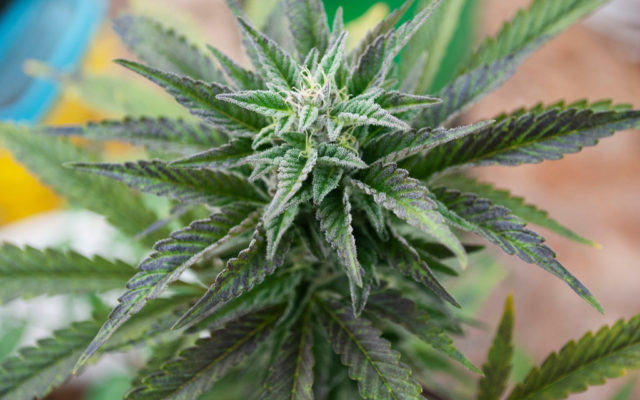
The year Maine cracked down on illegal marijuana
By Marie Weidmayer, Bangor Daily News Staff
More than a year after a leaked federal government memo connected illegal marijuana grow houses in Maine to Chinese organized crime, “well below” 100 such properties are believed to be left in the state, according to the U.S. Attorney’s Office.
About 60 properties across the state have been searched this year, leading to a significant decrease in illegal marijuana grow properties, Assistant U.S. Attorney Andrew Lizotte said.
The federal government this year cracked down on the large-scale illegal grow houses that usually have dangerous living conditions and are a nuisance to community members. People arrested in the raids are facing criminal charges in state or federal courts and tens of thousands of marijuana plants have been seized.
There is a lot of federal interest in illegal marijuana, and the U.S. Attorney for the District of Maine has “every intention” of continuing the enforcement work to stop the grows, Lizotte said.
“There’s every indication that Maine has become an inhospitable place for this sort of illegal activity to continue, but we’re not declaring victory by any stretch,” Lizotte said.
“There are still people who are concerned about this, and to the extent there’s any illegal activity continuing, our investigation is going to continue as well.”
The busts come in the year and a half after a leaked federal government memo from August 2023 said large-scale illegal grows in Maine are connected to Chinese organized crime, with the money being used for crime in the U.S. or being sent back to China.
Six people are facing federal charges for their alleged roles in illegally growing and processing marijuana. In state courts, at least 13 people are facing charges such as unlawful trafficking in scheduled drugs and cultivation of marijuana.
Federal charges accuse people associated with the homes of an array of crimes, from lying to banks to fraudulently obtain mortgages to maintaining illegal marijuana grow facilities.
Raids happened all over rural Maine this year, including in Brownville, Guilford, Milo, and Sangerville in Piscataquis County; Corinna, Eddington, Holden, and Passadumkeag in Penobscot County; Turner in Androscoggin County; Anson, Canaan, Cornville, Harmony, Madison, Mercer, Norridgewock, Ripley, Skowhegan, Solon, and St. Albans in Somerset County; Jay in Franklin County; Belgrade, China, Chelsea, Farmingdale, and Manchester in Kennebec County; Jefferson and Whitefield in Lincoln County; Mexico in Oxford County; Belmont and Freedom in Waldo County; and Parsonsfield in York County.
There have been 22 illegal marijuana busts in Somerset County alone this year. The sheriff’s office there has seized about 28,000 marijuana plants, 250 pounds of processed marijuana, $50,000 in cash and five vehicles in the raids.
At least 1,000 pounds of processed marijuana have been seized statewide in the raids, as well as more than 60,000 marijuana plants.
After the search warrant is executed, the homes are considered for civil forfeiture, where the federal government asks a judge to grant it ownership. The AG’s office considers taking ownership of a home if it has marketability and is in good condition, Lizotte said. So far it has filed for ownership of six properties.
The deeds to two homes have been granted to the government, which will then sell them through the U.S. Marshals Service, but no sales have happened, Lizotte said. The other four cases are pending.
The illegal grows also remove housing in towns where there’s already a short supply. Five properties were raided in Norridgewock in four months this year. If those homes return to the market, the amount of available properties would double in the town.
Single-family homes have to be gutted after they’re raided because of mold and other damages. Every room of some of the houses have been used to grow marijuana, with tables, grow lights and fertilizer left behind after police raids.
The massive amounts of electricity used — some grows used as much as a hotel each month — and the often non-permitted changes to the transformers increase the risks of fires and put people in jeopardy, Versant Power said previously.
Two people died of carbon monoxide poisoning at a house in Freedom in October. The property had been raided for illegal marijuana in May.
People who live in the towns with the grows are dealing with illegal activity that sometimes happens flagrantly, Lizotte said.
“That has a real effect on local communities and people who are trying to put in an honest day’s work, earn a wage, pay taxes on that wage,” Lizotte said. “It really chafes against the people who are in these communities living law-abiding lives, making an honest living. That’s why it’s so important.”